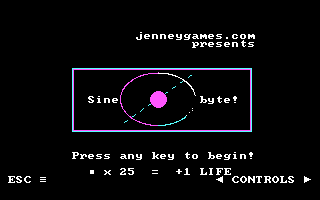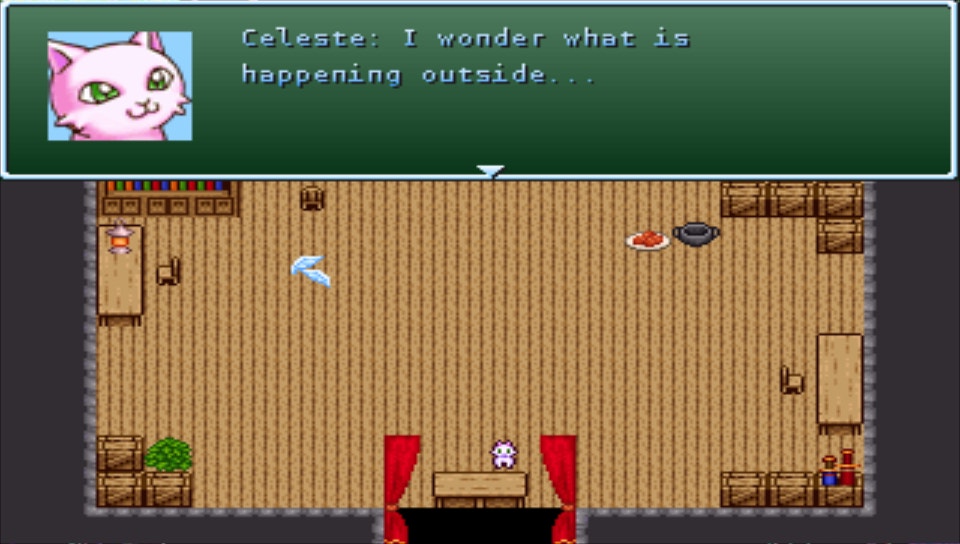- SineByte

MSDOS CGA snake game by jenneygames.com for DOSember Game Jam 2025.
Contains executable and source code. Use SINEBYTE.BAS for Qbasic or SINEBYT2.BAS with built-in clock limiter for compiling for QB45+.
Instructions
Requires DOSBOX or MS-DOS. Features internal speaker sounds effects!





Revision 2 SINEBYTE: New on-screen score, level and lives. New high score (autosave).
Original SINEBYTE: gamejam submission
- DOSROCKS

created by jenneygames.com
created for DOS Games End of Year Jam 2023(executable and source code included in ZIP download)
Instructions
Requires DOSBOX or MS-DOS. Features internal speaker sounds effects!
- Kitty Must Escape





Help Celeste escape and find a better place to claim as her own. But don’t get caught or you will have to restart from your room! Find catnip to trip out and glitch through obstacles in your way!
Game Concept by Debra Jenney
Game and Music by Josh Jenneyjenneygames.com
created for the PSP Re:Start 2022 GameJamInstallation for PSP
The game engine has a hardcoded absolute location, and the menu does crash when the engine/assets are not available/wrong location. (ie: timidity midi instruments, database, map files, title screen images, ect.)
The easyrpg engine requires the game in ms0.
Inside the ZIP file “Kitty Must Escape > PSP > GAME” there is the folder “easyrpg” . Move that folder to your /PSP/GAME directory.
Hardware PSP ms0:/PSP/GAME/easyrpg
Place a copy of the game in the PPSSPP’s game directory for ms0.
PPSSPP in Windows %USERPROFILE%/Documents/PPSSPP/PSP/GAME/easyrpg
PPSSPP on Linux ~/.config/ppsspp/psp/game/easyrpg
- Reformation Day




This is a visual novel engine, written to process a plain-text script at runtime.
The engine was developed and built during the seven day competition by Joshua Jenney. The graphic assets, story and music selection by his wife, Debra Jenney.Source code, assets and credits are included in the ZIP download.
Created for the 2020 PSP Halloween Game Jam
https://itch.io/jam/2020-psp-halloween-game-jam - PARALLAX

Horizontal and vertical parallax starfield screensavers!
Instructions
Requires DOSBOX or MS-DOS.
- Solar System

(executable and source code included in ZIP download)
Instructions
Requires DOSBOX or MS-DOS.
